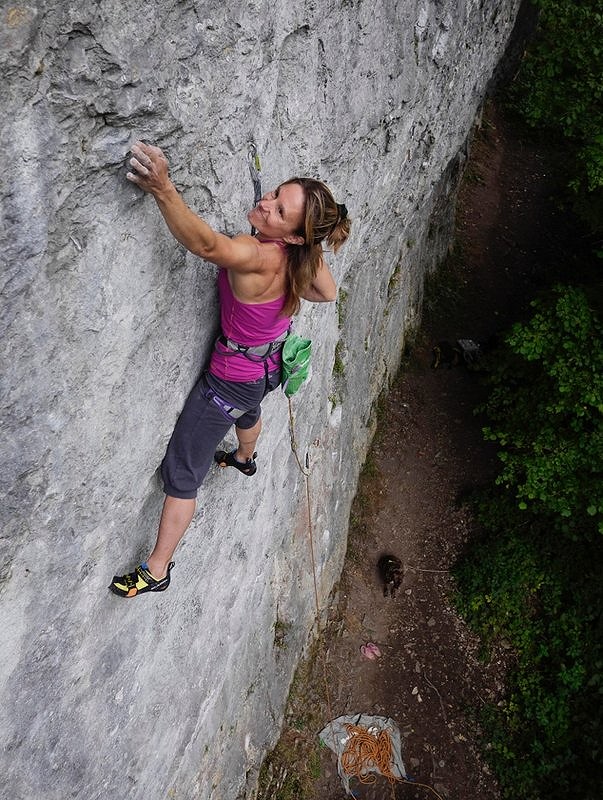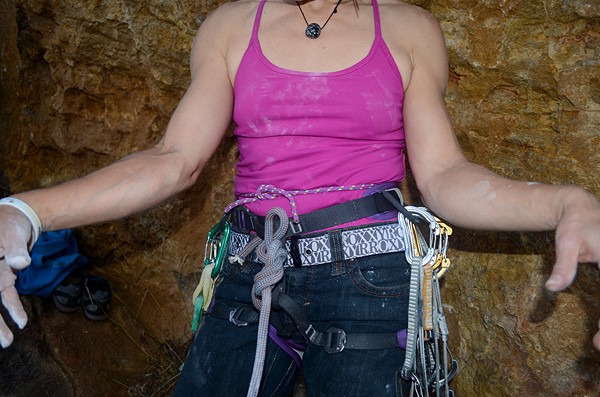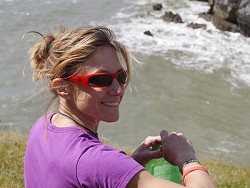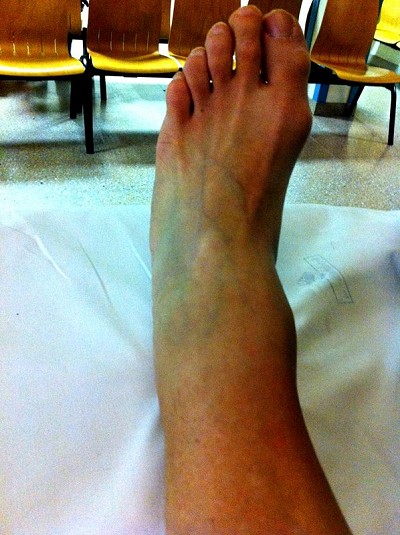From 2009-2012, I couldn’t really climb properly, I was just coasting [...] So those three years were annoying and disheartening, as I felt things were taken away from me before I was ready to stop.


Even though you feel like you are at rock bottom and you have your mountain to climb, you don’t. You only have to climb the top half because even if it doesn’t feel like it, you are already starting from advanced base camp rather than still doing the trek in.
It will happen! Especially if you’ve already had it. The body remembers and it never takes as long as it did to gain something as it does the first time you do it. So that’s a definite bonus. Even though you feel like you are at rock bottom and you have your mountain to climb, you don’t You only have to climb the top half because even if it doesn’t feel like it, you are already starting from advanced base camp rather than still doing the trek in. Hmm, not sure that analogy works, haha! Also, you get the chance to climb easier routes you may not have considered before. That’s what I enjoyed the most, just climbing loads of classic grit routes that I had never really considered before.
When you climbed Kalea Borroka, it was the first 8b+ ascent by a British woman. Recently we've seen more British women climbing 8b and above - what do you think this boils down to? What was missing before?
I think harder grades are being climbed because people are much stronger and because they are more up for getting on hard stuff. There is a confidence in abilities and it seems the belief is there. Previously, you felt a bit on your own trying stuff, whereas now there is such a strong depth in women's climbing, people get spurred on by what other women are trying and doing.
'I think in society in general, we are all taught from a very young age what is expected of us and what roles to adopt. This has a massive carry over into climbing and interactions at the crag. It can be detrimental at times in terms of achievements and perceived ability.'
What role (if any) does gender play in your climbing?
I'm not sure gender has a role as such but it is something I am very aware of. Men behave differently when women are about and that's no different in climbing. There are assumptions made subconsciously whether a woman will be able to do something, so the inference comes across and can be influential in decision making on whether to try something or not. I have always tried to be independent and not rely on anyone else to do things for me and this has stood me in good stead. But I think in society in general, we are all taught from a very young age what is expected of us and what roles to adopt. This has a massive carry over into climbing and interactions at the crag. It can be detrimental at times in terms of achievements and perceived ability. Breaking these gender habits can be very hard, in fact sometimes there isn’t an awareness that roles have been adopted, so the behaviours just carry on. I find it interesting and surprising observing even in young women and men that these gender roles haven’t changed much and it seems that thousands of years of evolution will not be changed overnight—even in my egalitarian utopian daydreams.






